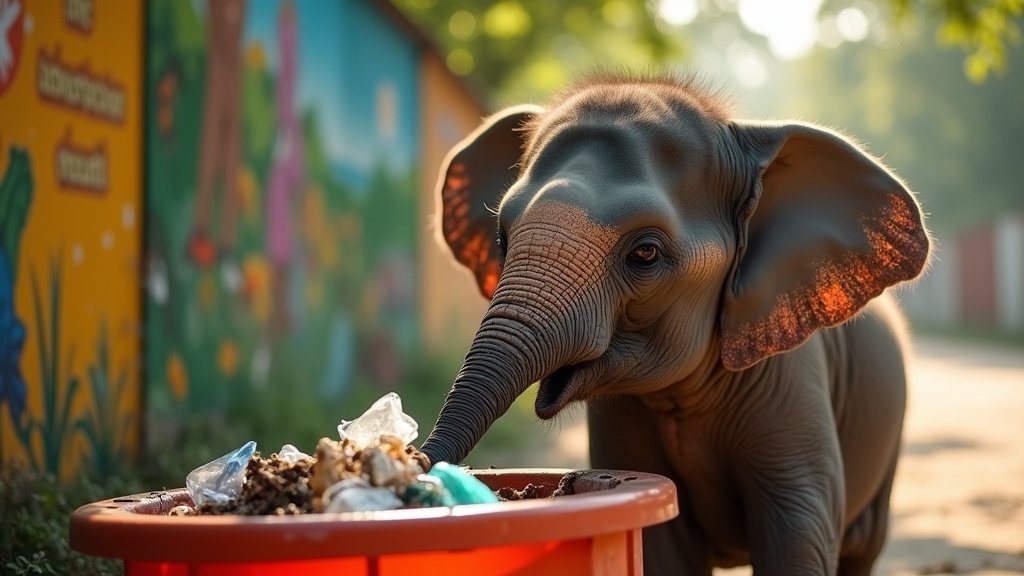Viral Video of Baby Elephant Disposing of Trash Ignites Online Conversation
A heartwarming yet thought-provoking video has captured the internet’s attention, showcasing a baby elephant in India performing a simple act that has resonated with viewers across the globe: using a dustbin to dispose of trash. The clip’s simplicity belies its powerful message, prompting a widespread conversation about cleanliness, personal responsibility, and the often-contrasting behaviors of humans and animals. The video’s rapid ascent to viral status highlights a growing concern for environmental awareness and the collective responsibility to maintain clean surroundings.
The Elephant’s Lesson
The video’s core action is straightforward. A young elephant, seemingly without prompting, is seen approaching a dustbin and depositing what appears to be refuse into it. The action, captured on camera, is a stark visual representation of responsible behavior. This simple act, however, has catalyzed a much larger dialogue. The video quickly gained momentum on social media platforms, where users began to draw comparisons between the elephant’s actions and human littering habits. The contrast became a focal point, with many expressing a sense of shame or irony at the situation. The elephant’s apparent understanding of proper waste disposal has underscored a critical point: environmental responsibility is not just about legislation or infrastructure, but also about individual choices and actions.
Political Figures and Public Reaction
The video’s impact extended beyond the realm of casual internet viewing. Its reach even extended to political circles. Former Karnataka minister C T Ravi shared the video on his social media accounts, further amplifying its reach and sparking increased engagement. Ravi’s post, which included the question, “If a baby elephant can use a dustbin, why can’t we?” became a rallying cry for many, reflecting the collective sentiment of frustration and concern over the widespread problem of littering. This type of engagement from public figures further elevates the conversation and demonstrates the viral video’s importance.
The public reaction has been largely positive, with the vast majority of viewers applauding the elephant’s behavior and using it as a teachable moment. This positivity indicates a growing environmental consciousness among the public and a desire to see more responsible behavior within their communities. The video has effectively become a symbol of this desire. The elephant’s actions, however, haven’t been met with universal acclaim. Some users have expressed skepticism, questioning the video’s authenticity or the intent behind the elephant’s actions. These concerns highlight the complexities of online discourse and the need to assess information critically.
The Importance of Cleanliness and Responsibility
Beyond the immediate novelty and entertainment value, the video’s enduring relevance lies in its underlying message regarding the importance of cleanliness and personal responsibility. The contrast between the elephant’s behavior and the prevalence of littering is a powerful one. It serves as a reminder that keeping our environment clean is a shared responsibility, one that requires both individual and collective effort. The video highlights that basic, mindful practices, such as properly disposing of trash, can have a significant impact. This fundamental environmental message, communicated through a simple act by an animal, has resonated with audiences precisely because it is a reflection of a need for change.
Looking Forward
The baby elephant’s dustbin duty may seem like a small event, but it sparked a larger conversation. The video’s ongoing popularity and the dialogue it has triggered serve as a testament to the power of visual media. It’s a reminder that seemingly trivial events can act as catalysts for broader conversations about societal values and environmental consciousness. As the video continues to circulate, it will hopefully inspire further reflection and action, pushing individuals and communities to adopt more sustainable habits and a stronger sense of responsibility toward the planet.





